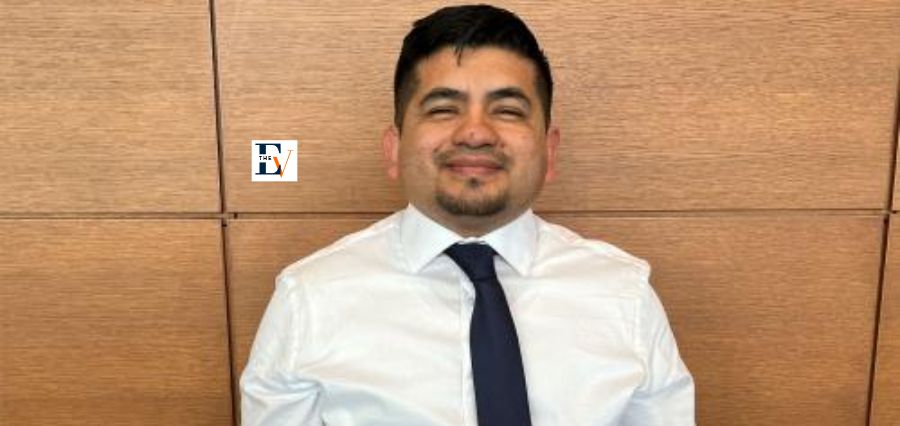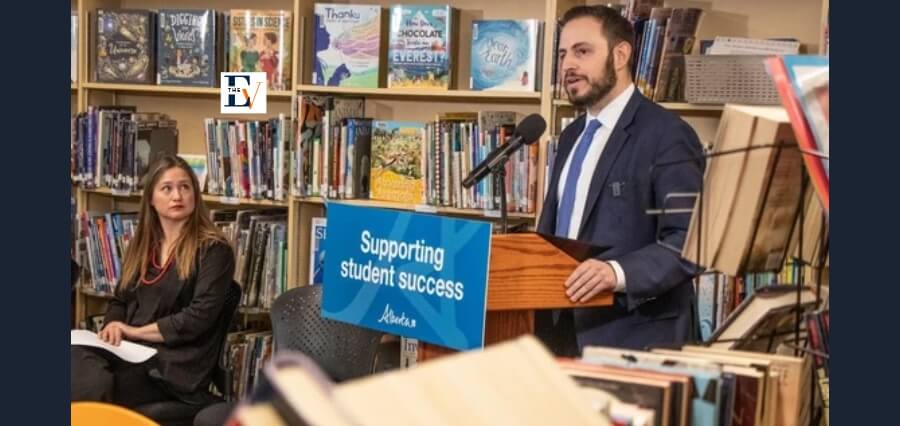Since childhood, we have been raised under a systemized bracket of rules and regulations, and there is always a force of regulators who stop us retrain our actions. In case of breaking these rules, we are often found under the spotlight of punishment.
These rules and regulations are not only meant for children; they are meant for everyone, and as we grow older, these laws become more serious, making us socially responsible. Moreover, if someone tries to break those rules and regulations, in that case, many appointed jurisdictions look out for the matter and punish the rule breakers of the society for the unlawful activity and set an example for others to note.
But who decides the punishments for the people who are performing wrong activities? If the activity is criminal, the person’s sentence must be decided in the court of law. For instance, if someone is working in bad faith in a commercial space, then the level of punishment and penalty must be decided in a way that should prevail in justice and restore the faith of law in people once again.
The court’s judge decides all these punishments once the criminal’s crime is proved in the court and there are appointed lawyers who fight against wrong. But again, do lawyers and judges make the punishments for such significant crimes?
Many institutions provide professional degrees to future lawyers to learn the law. The main motive of all the law institutions is to make their students capable so that they can take the right decisions and do justice to each and every person.
Similarly, Universitas Airlangga, Faculty of Law, is one of the best law universities that holds law as the highest order. And it is clearly stated in its vision statement, ‘professional jurist’. The institutes’ primary objective is to make aware, innovate and implement the law in their country.
It is one of the older and renowned law schools in Indonesia. The alums of the college holding prestigious positions in legal institutions in their country Indonesia, the positions like chief justice at the supreme court, constitutional court justice, lawyers, and many other superior positions.
In an interaction with The Education View, Iman Prihandono, the Dean of the institute, shared the institute’s journey and the institute’s adopted technological strategies and future goals.
Read ahead to have a brief about the institute and know about its exceptional pedagogies that serve its vision.
Origin of the Institute
Faculty of Law Universitas Airlangga was first established in 1951 and joined Universitas Airlangga in 1954. It is one of the oldest law schools in Indonesia, with a long history and tradition in legal education. Its alums have been entrusted with prestigious positions in legal institutions in Indonesia, including the Chief Justice at the Supreme Court, Constitutional Court Justice, The Attorney General, Vice Minister of Foreign Affairs, and reputable lawyers.
As the third law school, which was established in the early independence of Indonesia, the Faculty of Law Universitas Airlangga has contributed to the journey of Indonesian legal development. It sets the keyword ‘professional jurist’ as an effective term to focus the curriculum on preparing graduates ready to support the good implementation of law in many areas of legal professions.
However, shaping professionals in the school has always been the heart of the faculty institute since its establishment. While supporting their ambition, the Faculty of Law Universitas Airlangga has initiated various strategies like
- Maintaining academic quality through achieving accreditation from reputable national and international accreditation institutions.
- Improving the quality of human resources by providing training to the lecturers in various countries helps them expand their network and collaborations and enriches their international academic atmosphere and experiences.
- The institute is encouraging research and publications to focus on global issues, in which they cater Sustainable Development Goals, Renewable Energy, Law and Technology, and all these three goals have been chosen recently as research streams. All these three milestones are carried over sustainably for years and have created well-established higher legal education.
When we were talking about the institute, Iman Prihandono highlighted the college’s vision and mission statement ahead:
Statement of Vision and Mission
While stepping ahead and diving for more information about the college, Iman Prihandono enlightens us with the institute’s vision and says, “Faculty of law that provides excellent legal education which deeply rooted to justice and morality, positively contribute at a national and global level.”
Sliding down and highlighting the mission statements, he adds,
- “To provide a legal education that produces excellent and competent jurists based on the values of justice and morality.
- To develop innovative and sustainable research.
- To support the development of legal education and knowledge.
- To dedicate legal expertise to serving society with national and global impacts.
- To implement good governance and accountability in legal education through institutional development for global competition.”
After stating the institute’s vision and mission statements, Iman Prihandono also shared the core competencies of the institute.
Core Competencies and its Corollary
The Faculty of Law’s vision aligns with the UNAIR’s vision to promote a curriculum that produces independent, innovative, adaptable, and professional graduates. In this context, the institutes’ study program is designed to provide qualifications with practice in the legal profession (such as judge, prosecutor, lawyer, legal consultant, government officials, business and economic sectors) at the national or international level.
Core competencies that are expected to be acquired by the graduates should be reflected in their profile as the characteristics mentioned in the Curriculum Document. The profile is described as follows:
- Professionals
- Researcher
- Manager
- Leader
Through the Curriculum Document, the Learning outcome of the study program is to produce qualified graduates as professional jurists. Professional Jurist means that the graduates of the program are expected to-
- Understand the concepts, principles, and rules of law as a basis for mastering legal competencies (proficiency and skills).
- Have legal reasoning ability in applying legal concepts, principles, and norms to solve legal problems through litigation and nonlitigation mechanisms.
- Have the ability to research, conduct community service, and develop the law in an innovative manner.
Getting an insightful view of the core competencies and their outcome, we also get enlightened with the university’s students’ organizations which all cater for the future abiding law leaders.
Student’s Union
There are 15 students organizations at the faculty level and many more at the university level that can be classified according to the areas of interest, namely: arts (i.e., choir, traditional music, and dance, orchestra); sports and martial arts (i.e., basketball, karate, wushu) and academic (i.e., debate, mooting-court) and also a student senate. There are various notable achievements have been collected by law students.
Apart from students’ organizations, the institute has 13 research centres at the Faculty of Law to facilitate lecturers and students who share the same research interest, for instance, Human Rights Law Studies; Health Law Research Centre; Research Centre on Intellectual Property Law Centre for Legal Pluralism; Constitutional Law Research Centre; Anti-Corruption Research Centre; and Airlangga Institute for International Law Studies.
Other than this, the institute has certain global exposures for their students, and those programs have been discussed.
Internationalization Strategies
The faculty sets up targets and policies to ensure international orientation sustained in its business process. The approaches are:
- Staff outbound and student outbound: This program encourages lecturers and students to plan their international mobility.
- Visiting lecturers and adjunct professors: Some visiting lecturers have come from all around the world, such as India, the Netherland, Australia, and Asian countries.
- International academic exposure (including academic peers and international level organization membership): The exposure ranges from attending and conducting international conferences, international association membership, colloquium, academic peers, short courses, student exchange programs, and other academic activities.
- Continuous international cooperation (double degree, conference): The program prepares the students to face the complexities of global society and adapt to Asia’s navigating legal and cultural norms.
- Research collaboration, library collection: As it is essential to facilitate research during the pandemic, the Faculty of Law takes the opportunity at the Orange Knowledge Program (OKP), a competitive grant from The Ministry of Foreign Affairs Kingdom of the Netherlands, to level up library services by adding access to international journal collection.
- Range of courses: There are more than 20 subjects directly connected with international discussions, such as Comparative Law, Comparative Constitutional Law, International Economic and Trade Law, International and Transnational Crime, and International Arbitration Law.
All these strategies provide a global platform to the students, but there are many other programs as well, where students can enhance their skills in the school itself.
Enhancing Career Opportunities
Universitas Airlangga has a unit called Career and Entrepreneurship Centre, which provides career counselling and placement service to all students from all majors in Universitas Airlangga. As a supporting unit to all faculties, the centre conducts many activities to improve students’ talents both in entrepreneurship and career preparation –
- Career Counselling.
- Airlangga Career Fair (ACF).
- Career Preparation (CP).
- Campus Recruitment (CR).
- Alumni Class/Professional Class.
All these approaches help the university achieve its milestones and bags many awards and recognition, making it a well-renowned university.
Flying Colours of the College
While mentioning the awards, accolades, and accreditations, Iman Prihandono asserts, “For the Faculty of Law here are: FIBAA quality seal for Bachelor of Law Program and Master of Law Program; accredited by ASEAN University Network and accredited A grade and Excellent by National Accreditation Board. The faculty is also a registered member of law school associations, namely, ASLI, IALS, and appointed as secretary of the National Coordination Board of Law School (BKS).”
Future Holding the Vision
The Faculty of Law identifies some challenges like the use of technology in law (legal Tech), the administration of cases in court, making decisions, completing audits of legal documents, making laws and contracts, and predicting the final outcome of legal disputes are increasingly using technology, for example, Stanford Legal Design Lab.
While talking about the future vision, Iman Prihandono mentions, “The faculty prepared a strategic planning, the ‘Airlangga Law School: Teaching Leader for Tomorrow’ with BEST as the platform- Brave, innovative, creative students with integrity and professional ethic: Educating and nurturing students who dare to make decisions, are able to innovate and be creative while maintaining personal integrity and professional ethics.
Environment for vibrant academic atmospheres: An academic climate and culture that encourage new developments in legal scholarship through research, publications, and international academic collaboration.
Smart IT for lean administration and faster management decision-making: The use of information technology to provide better and faster services in the learning process and foster a more transparent and accountable administration and management.
Transfer of benefit, knowledge, and added value ‘for and from university, alumni, industry, and community: To become the centre for continuous development of legal knowledge and skills, and as a liaison for the exchange of values, knowledge and contributions between campus, alumni, industry and society,” further he stated.
Read more: click here






